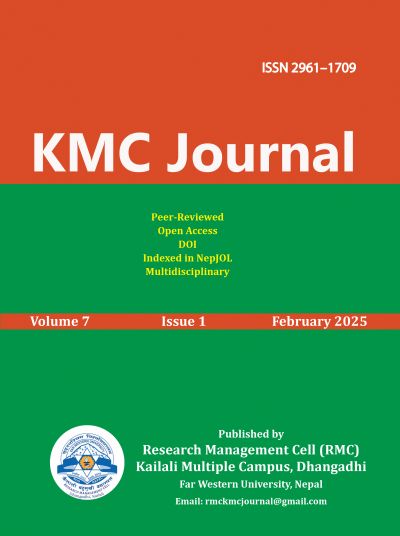Exploring the Human Mind in Golding’s Lord of the Flies: A Freudian Perspective
DOI:
https://doi.org/10.3126/kmcj.v7i1.75122Keywords:
Civilization, conflict, control, evil impulses, human psyche, savageryAbstract
This research article aims to provide a descriptive and analytical account of human nature from the Freudian perspective of human mind in Golding’s Lord of the Flies. As Freud contends that human actions, attitudes and personality are consequences of the play of mind, the major characters in the novel are seen as influenced by their psychic forces. Jack, an embodiment of the id impulses, exposes the dark side of human nature and brings destruction and chaos on the utopic island. Ralph and Piggy, representing Freudian ego and superego foreground civilizing forces and try to establish harmony, morality and civility. Thus, this article tries to explore extensively how the overpowering id as an irrational psychic force leads an individual towards the lower level of savagery from the higher sense of civilization, and how bright side of human nature gets affected by the irrational instincts that govern us. Exploring the boys’ descent into savagery, Golding elucidates how soon societal norms and values collapse due to humanity’s darker impulses. Further, this article anticipates human beings’ application of positive side of mind to bring harmony and order in the society.
Downloads
Downloads
Published
How to Cite
Issue
Section
License

This work is licensed under a Creative Commons Attribution-NonCommercial 4.0 International License.
This license allows reusers to distribute, remix, adapt, and build upon the material in any medium or format for noncommercial purposes only, and only so long as attribution is given to the creator.




